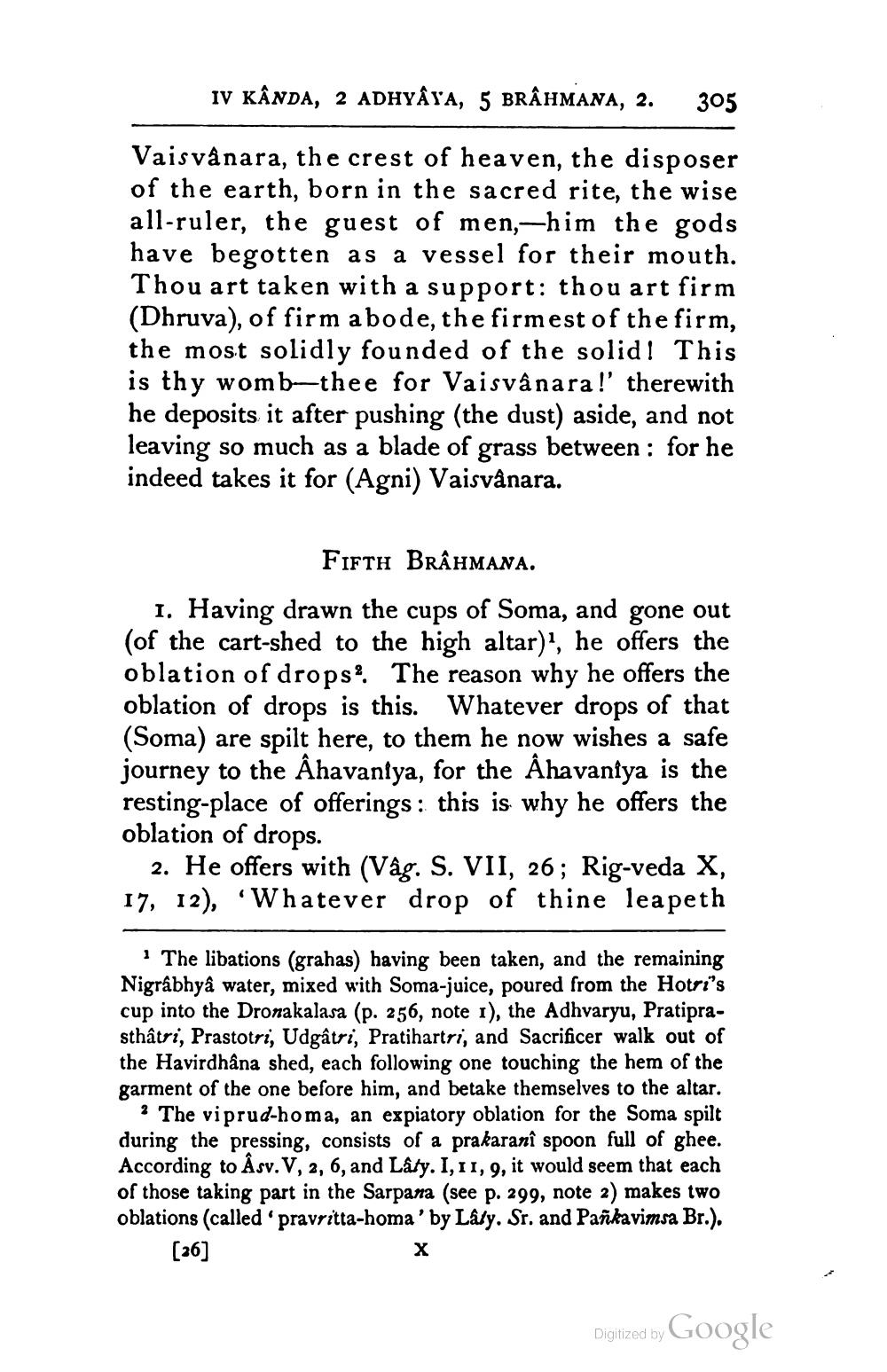________________
IV KÂNDA, 2 ADHYÂYA, 5 BRÂHMANA, 2.
305
Vaisvanara, the crest of heaven, the disposer of the earth, born in the sacred rite, the wise all-ruler, the guest of men,-him the gods have begotten as a vessel for their mouth. Thou art taken with a support: thou art firm (Dhruva), of firm abode, the firm est of the firm, the most solidly founded of the solid! This is thy womb~thee for Vaisvânara!' therewith he deposits it after pushing (the dust) aside, and not leaving so much as a blade of grass between : for he indeed takes it for (Agni) Vaisvânara.
Fifth BRÂHMANA. 1. Having drawn the cups of Soma, and gone out (of the cart-shed to the high altar), he offers the oblation of drops. The reason why he offers the oblation of drops is this. Whatever drops of that (Soma) are spilt here, to them he now wishes a safe journey to the Ahavantya, for the Ahavaniya is the resting-place of offerings: this is why he offers the oblation of drops.
2. He offers with (Vâg. S. VII, 26; Rig-veda X, 17, 12), 'Whatever drop of thine leapeth
The libations (grahas) having been taken, and the remaining Nigrabhya water, mixed with Soma-juice, poured from the Hotri's cup into the Dronakalasa (p. 256, note 1), the Adhvaryu, Pratiprasthatri, Prastotri, Udgâtri, Pratihartri, and Sacrificer walk out of the Havirdhâna shed, each following one touching the hem of the garment of the one before him, and betake themselves to the altar.
? The viprud-homa, an expiatory oblation for the Soma spilt during the pressing, consists of a prakaranî spoon full of ghee. According to Âsv. V, 2, 6, and Låty. I, 11, 9, it would seem that each of those taking part in the Sarpana (see p. 299, note 2) makes two oblations (called 'pravritta-homa' by Láty. Sr. and Pañkavimsa Br.).
[36]
Digitized by Google




